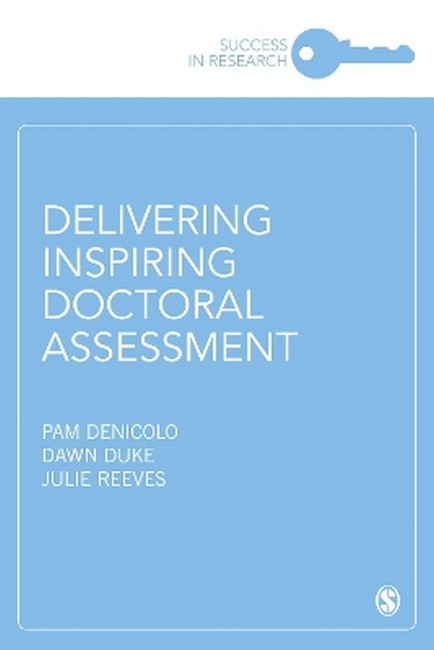Working across a range of disciplines (Psychology, Health & Social Care and Pharmacy), Pam Denicolo, a Professor Emerita from the University of Reading, a Fellow of the Academy of Social Sciences, and an Honorary Member of the Royal Pharmaceutical Society, has wide-ranging experience both of using a range of research approaches and methods and of teaching how to use them well to a broad range of students and professionals world-wide. She has served on executive boards and committees of national and international learned societies and organisations devoted to research and teaching. She continues to publish widely student support materials, books, and journal articles on research because she remains passionately committed to mentoring and coaching newer researchers and academics. Dr Dawn Duke is Head of Programmes for the Africa Research Excellence Fund, a charity supporting the professional development of early career researchers in Africa. She has a PhD in neuroscience and years of experience teaching undergraduates and postgraduates research design, methodology and statistics. Dr Julie Reeves is a Researcher Developer/Senior Teaching Fellow at the University of Southampton, and a Co-Investigator with a GCRF funded project, BRECcIA, leading the Capacity development work package. She has been involved in researcher development since 2002, working with the Civic Education Project in Belarus and Ukraine, and then as the Skills Training Manager, Faculty of Humanities, University of Manchester. She was a key researcher and contributor to the Vitae 'Researcher Development Statement and Framework' and is a Vitae Researcher Developer Senior Fellow. She is a member of the Chartered Institute of Personnel Development, a co-convenor of the Postgraduate Issues Network within the Society for Research into Higher Education, and currently facilitates the South East Researcher Developers network. She is a co-editor of the SAGE Success in Research series with Pam Denicolo, Dawn Duke and Alison Yeung.
Request Academic Copy
Please copy the ISBN for submitting review copy form
Description
Chapter 1 What is 'doctorateness' Chapter 2 What is the role of assessment in doctoral studies? Chapter 3 What are the regulatory requirements and responsibilities of doctoral assessors? Chapter 4 What different forms does assessment take and why during the process of a doctorate? Chapter 5 How can assessment be made inclusive? Chapter 6 How can you establish an appropriate rapport and respect in doctoral assessment? Chapter 7 What feedback is useful and how can it be negotiated? Chapter 8. How can you deal well with less positive assessment outcomes? Chapter 9. What forms of final doctoral assessment procedures might an examiner encounter? Chapter 10. What should we be looking for in a thesis? Chaptee 11. What are the purposes of a viva voce and how can it be conducted rigorously and compassionately? Chapter 12. What are potential outcomes and what will be your continuing role?
This engaging and inclusive book provides supervisors and examiners with a complete guide to assessment in the doctoral process. Anyone who is supervising or examining a PhD will benefit greatly from its wisdom and candour. -- Paul Ashwin This is a must-read book for new and experienced supervisors and examiners alike. Not only is it full of excellent advice and practical tips, but it stimulates reflection of practice through probing questions. The powerful voice of doctoral researchers remind us of what a privilege and responsibility it is to be part of the doctoral journey - this book will help us travel it well. -- Mariann Rand-Weaver

